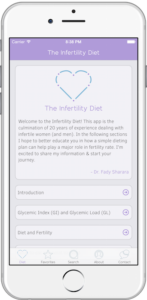AMH, anti-Mullerian hormone, is part of ovarian reserve assessment
AMH levels in a woman’s blood help our Virginia fertility doctor, Dr. Fady Sharara, determine a woman’s fertility potential. This blood test is one important component of our ovarian reserve testing.
AMH and ovarian reserve
Granulosa cells, which are cells that line the follicles in the ovaries, produce AMH. Ovarian follicles are the sacs that contain developing eggs, or oocytes, that wait to be released during a woman’s menstrual cycle each month. The level of this hormone in a woman’s blood provides our Virginia fertility doctor with important information about a woman’s egg supply, also called ovarian reserve.
If the level of anti-Mullerian hormone is normal, that is a good indication that a greater quantity of eggs is remaining, increasing the chances that a woman will conceive on her own or respond favorably to fertility treatment. If the level is low, it indicates that the woman has diminished ovarian reserve, which is important information that helps us create a treatment plan for the patient.
AMH testing
The anti-Mullerian hormone test is a simple blood test that can be performed at any time during a woman’s cycle. This test is particularly recommended for certain women.
- Those who want to pursue IVF or those considering egg freezing.
- A woman who has had unprotected sexual intercourse without conceiving after six months if she is older than age 35; after one year if she is 35 or younger.
- Women who are concerned about their fertility due to a history of radiation or chemotherapy treatment.
- Women interested in egg freezing and wanting to know whether they are good candidates
This testing provides helpful information about a woman’s ovarian reserve (but not the quality of her eggs). It can also provide important information about a woman’s expected response to ovarian stimulation.
Fertility treatment provides hope
If the test indicates a low AMH level, there is still reason to hope and plan for a successful pregnancy. Our Virginia fertility doctor will compile all the information we obtain during fertility testing and prepare an individualized treatment plan for each patient. For example, if a woman has a low level, Dr. Sharara can devise a proactive treatment plan that addresses a woman’s potentially poor response to ovarian stimulation, as well as her diminished egg supply. A low level does NOT mean that a pregnancy will not happen. Many other factors are taken in consideration including age, FSH level, and antral follicle count (AFC).
Dr. Sharara offers personalized treatment and attention, devoting himself fully to each patient during every phase of evaluation and treatment. To learn more about AMH and fertility, contact us today.


